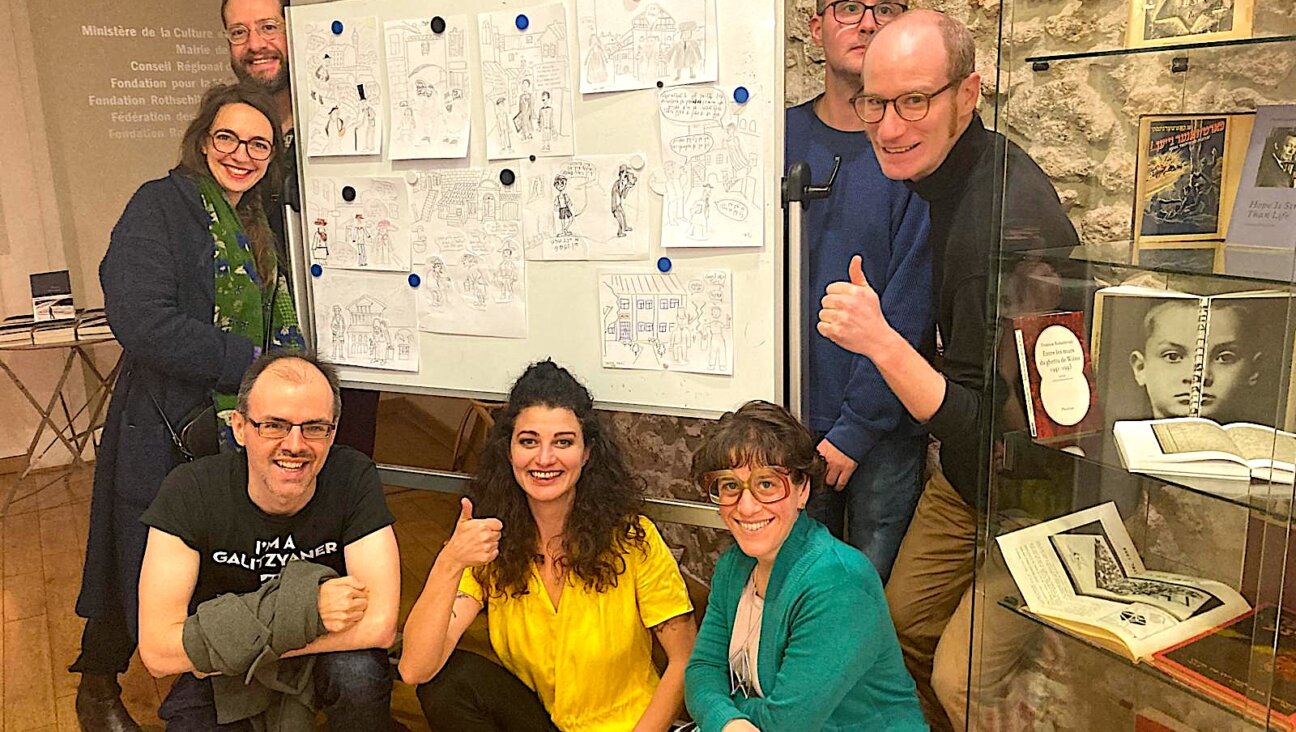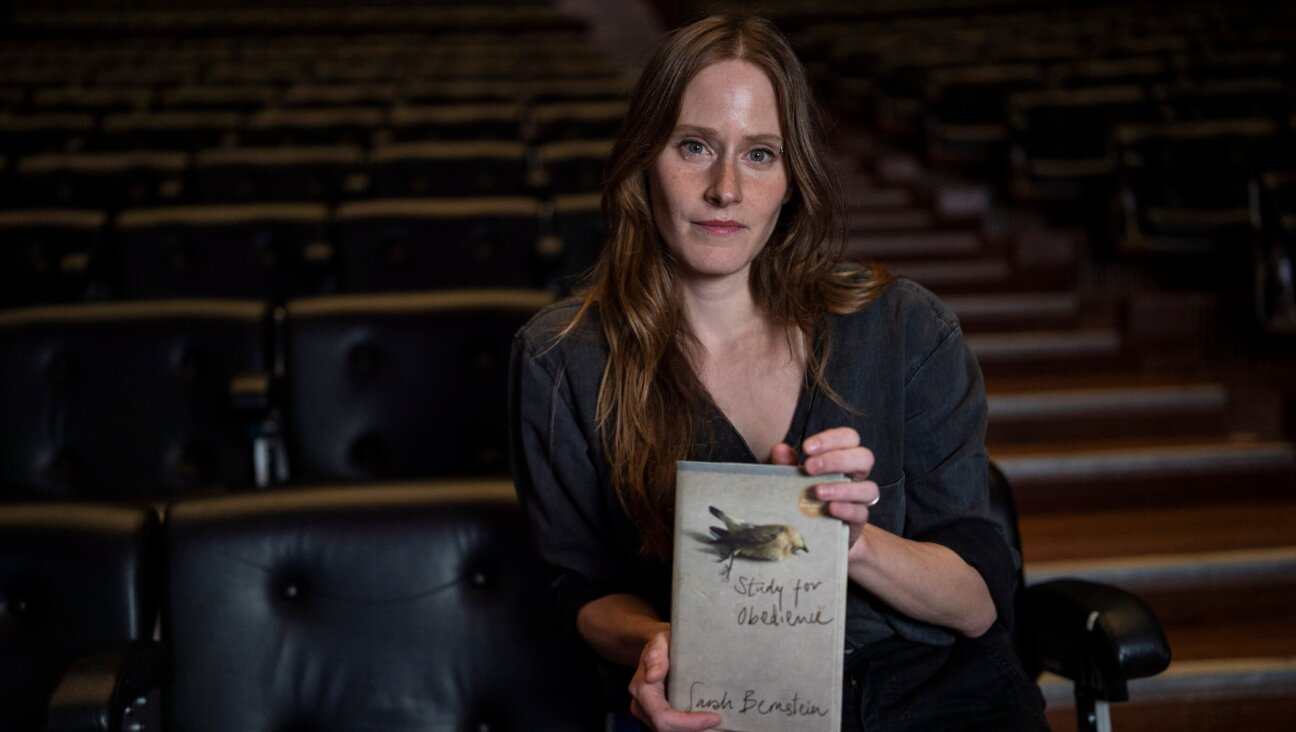The Libyans Give Ancient Music a Fresh New Sound

Image by Courtesy PKPR
The Libyans are actually Israelis. But Yaniv Raba and Yankale Segal have carved a singular pop niche by reimagining ancient Libyan-Jewish sacred hymns, or piyutim, as worldbeat anthems.
With their distinctly modern mashup of musical styles, they’re also rescuing a beautiful genre of devotional poetry that came very close to disappearing. Arabic, African, Turkish and Western influences seep through the music of their six-piece band, while the timeless piyutim make for soul-stirring vocals.
On May 7, The Libyans will make their U.S. debut as part of the Global Beat Festival, a Manhattan series showcasing “artists who have pioneered new musical genres, resurrected lost traditions, and pushed the boundaries of popular music from around the world.”
Between 1949 and Libyan independence in 1951, more than 30,000 Libyan Jews left their homeland for Israel, according to the JewishMorocco blog. But the Libyans’ 2013 debut album, “Wandering,” which took two years to compile and produce, may be the only modern recording of their traditional verses.
The Forward caught up with Libyans leader Yaniv Raba by email from Israel.
Michael Kaminer: Will your music seem familiar at all to Ashkenazi or Sephardi Jews?
Yaniv Raba: Since the music is mostly based on the Middle-Eastern maqam music scale, I believe it will sound familiar to Sephardi Jews. The band contains musicians who played Middle Eastern oriental acoustic instruments — Oud, Kanun, Nay (middle-eastern flute)— and western instruments, like bass and acoustic guitar. In the rhythm there are different types of traditional percussions — Darbuka, Riq, Cimbals, Cajon.
How did the band discover this music? Was the world really in danger of losing the music completely?
I grew up hearing and singing some of the projects’ hymns, or piyutim, on special occasions — wedding parties, Shabbat evening, birthdays, holiday.
In addition, the Or Shalom Center, which preserves and imparts the legacy of Libyan Jews, co-produced and sponsored the album, providing us with many recordings from its own collection library. The rest of the music came from recording my father, David Raba, a well-known Libyan-tradition cantor and prayer leader in a synagogue in Netanya. He’s highly familiar with the Libyan piyutim.
Many of those piyutim have never been documented. We constantly try to find more cantors/musicians/people from this generation who are familiar with it, and are willing to share these songs. Unfortunately, only few of them still live amongst us and are of a clear mind.
What reactions have you seen to the music, especially from people who might have roots where the music originates?
This music raises nostalgic sensations. It reminds people with Libyan roots of their childhood, grandparents, family events. Beyond that, we’re always happy to see that audiences unfamiliar with this style connect to the musical atmosphere and spirit.
To my delight, we are speaking a universal language, to which some will connect more and some will connect less, regardless of the geographic location. We are trying to connect old and new, East and West, and in the shows we emphasize the ultimate connection — ours and the crowd’s.
Because these hymns are considered sacred music, were there special considerations in reconstructing them? Did you have to consult with rabbis or cantors?
Indeed, we continuously consult my father and other key people in the community, like Pedazur Benattiya, Or Shalom Center’s chairman. As far as preservation of this music, the considerations are the text, composition and music. How do we take a hymn which exists in harmony with its composition for many years, and turn it into a contemporary song?
Together with Yankale, my partner to the musical arrangement and musical production, we build a concept around each song, well before the recording stage, a concept that leads us through the different stages of the production.
The Atlantic ran a story about a revival of Jewish Libyan food, which also had been thought lost. Have you tried any?
I don’t know the story, but within the Israeli Libyan community, the food is alive and kicking! I recommend whoever may have a chance to taste this food. It’s delicious and very diverse, but careful — sometimes it’s very spicy as well.
A message from our CEO & publisher Rachel Fishman Feddersen

I hope you appreciated this article. Before you go, I’d like to ask you to please support the Forward’s award-winning, nonprofit journalism during this critical time.
We’ve set a goal to raise $260,000 by December 31. That’s an ambitious goal, but one that will give us the resources we need to invest in the high quality news, opinion, analysis and cultural coverage that isn’t available anywhere else.
If you feel inspired to make an impact, now is the time to give something back. Join us as a member at your most generous level.
— Rachel Fishman Feddersen, Publisher and CEO























